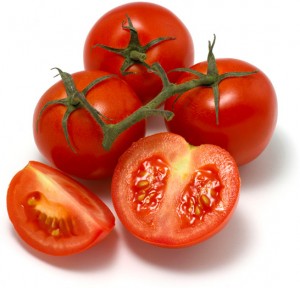Top 3 Lifestyle Choices that Affect the Skin
Did you know 80% of visible aging in the skin is due to extrinsic factors? How we manage stress and treat our body will be reflected in our skin!
 In this hectic, crazy world we live in, our health should be our top concern but, at times, it is pushed aside for more eminent issues of life. Processed, fast food, take-out and even so-called “quality” restaurant meals are full of simple sugars, carbohydrates, saturated fats and sodium. Add to that the excessive amounts of caffeine we consume just to keep “life’s candle” burning at both ends, as well as the alcohol and cigarettes we take in to calm our nerves, we literally become a ticking time bomb of unhealthiness. Not only do such lifestyle choices affect our internal organs but unhealthy lifestyle choices affect our skin as well.
In this hectic, crazy world we live in, our health should be our top concern but, at times, it is pushed aside for more eminent issues of life. Processed, fast food, take-out and even so-called “quality” restaurant meals are full of simple sugars, carbohydrates, saturated fats and sodium. Add to that the excessive amounts of caffeine we consume just to keep “life’s candle” burning at both ends, as well as the alcohol and cigarettes we take in to calm our nerves, we literally become a ticking time bomb of unhealthiness. Not only do such lifestyle choices affect our internal organs but unhealthy lifestyle choices affect our skin as well.
Diet
By now, you have probably heard the saying, “you are what you eat.” Well, this is in fact true. What we consume not only has an affect on our internal organs but it affects our largest, external organ, our skin, as well. In one study by Loren Cordain, a professor of health and exercise science at Colorado State University in Fort Collins, it was found that consumption of candy bars, potato chip, cookies, doughnuts, cakes, soda, pizza, white breads and other processed sugary and starchy foods common to Western cultures may indeed have an effect on the condition of the skin.
 One way to help correct skin conditions is to consume better foods. Some research suggests that a diet rich in vitamin C and low in unhealthy fats and processed or refined carbohydrates might promote younger looking skin.
One way to help correct skin conditions is to consume better foods. Some research suggests that a diet rich in vitamin C and low in unhealthy fats and processed or refined carbohydrates might promote younger looking skin.
Listed below are a few skin-friendly foods from the Mayo Clinic:
- Carrots, apricots, and other yellow and orange fruits and vegetables: high in vitamin A and C (antioxidant, regulates cellular growth, promotes healing)
- Spinach and other green leafy vegetables: high in vitamin C (antioxidant)
- Tomatoes: contain phytochemicals such as lycopene (reduces inflammation)
- Blueberries: high in vitamin A and antioxidants
- Beans, peas and lentils: contains zinc which reduces inflammation
- Salmon, mackerel and other fatty fish: reduces inflammation and increases moisture levels in the skin
- Nuts: contain polyunsaturated fat (omega-3) which reduce inflammation and increase moisture levels in skin
- Green tea: reduces inflammation
Also:
- Limit intake of sugar and simple carbohydrates which increase inflammation and, eventually lead to cellular injury (glycation)
- Hydrate: cut back on these dehydrating substances (coffee, alcohol) and increasing water intake is vital for healthy skin. It is recommended that a person drink 8–10 glasses of water a day, as well as an additional two glasses for every glass of alcohol or caffeine
Stress
Stress can have harmful effects on the skin. According to Skin, Inc magazine, “existing skin conditions including psoriasis and rosacea can be aggravated from an increase in stress.” However, the most common visible presentation of stress is an acne breakout. When the body is stressed, sebum production increases due to hormone responses and inflammation is triggered: two of the main factors that lead to acne.
Increasing levels of cortisol, due to long-term stressors, places stress on the skin. “This hormone depletes the amount of hyaluronic acid, the ground substance for many structures of the skin, and leads to dehydration and dry skin. The combination of the effects from cortisol and inflammation can lead to the breakdown of collagen and elastin, resulting in fine lines and wrinkles” (Skin, Inc. magazine).
6 Ways to Reduce the Effects of Stress on Your Skin
- Don’t neglect your skin. Take care of your skin, even if you’re tired or stressed.
- Get regular exercise. It’s good for your skin and the rest of your body.
- Take time for yourself to do something you enjoy, even if you only have ten minutes. Take a bath or read an article.
- Practice stress management techniques, such as breathing exercises, yoga, meditation, or visual imagery.
- Get enough sleep. Seven to eight hours each night is ideal.
- Say no. It’s OK to set limits and boundaries to lower your stress.
 Kick the Habit
Kick the Habit
Lighting up the old cancer stick does not only cause cancer; it causes you to look years older than you truly are. According to the Mayo Clinic, “smoking can speed up the normal aging process of your skin, contributing to wrinkles.” Smoking doesn’t cause wrinkles only on your face. Smoking also is associated with increased wrinkling and skin damage on other parts of your body, including your inner arms. Smoking also reduces healing time as well as contributes to congestion within the pores.
Why does smoking cause wrinkles? “The nicotine in cigarettes causes narrowing of the blood vessels in the outermost layers of your skin. This impairs blood flow to your skin. With less blood flow, your skin doesn’t get as much oxygen and important nutrients, such as vitamin A. Many of the more than 4,000 chemicals in tobacco smoke also damage collagen and elastin, which are fibers that give your skin its strength and elasticity. As a result, skin begins to sag and wrinkle prematurely because of smoking,” as stated by Lowell Dale, M.D.
Poor skin tone, sagging skin, lines around the lips, age spots, psoriasis, crow’s feet, all from smoking, eating poorly and not exercising? Call me vain but no thank you!

No comments yet. Be the first!